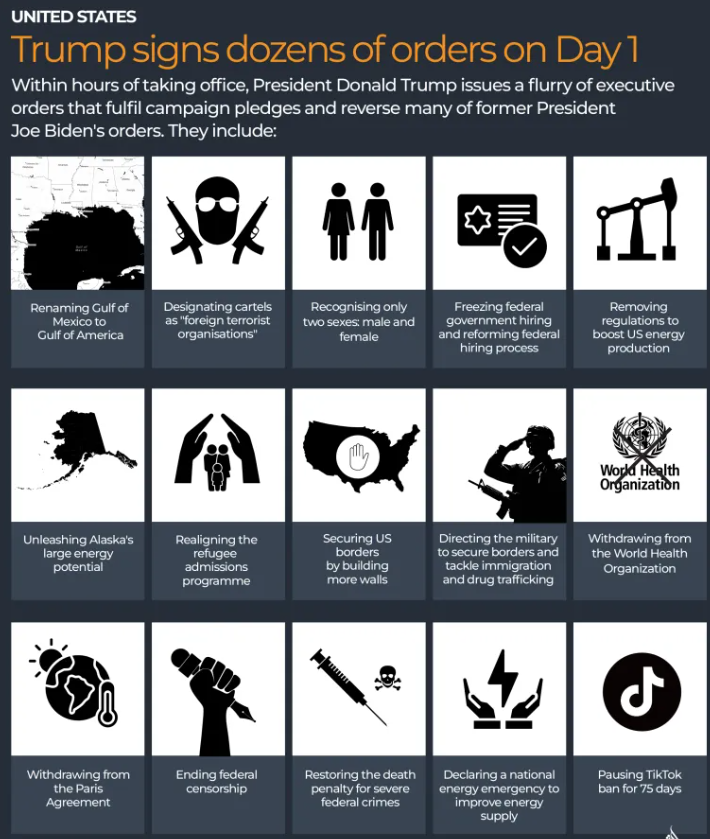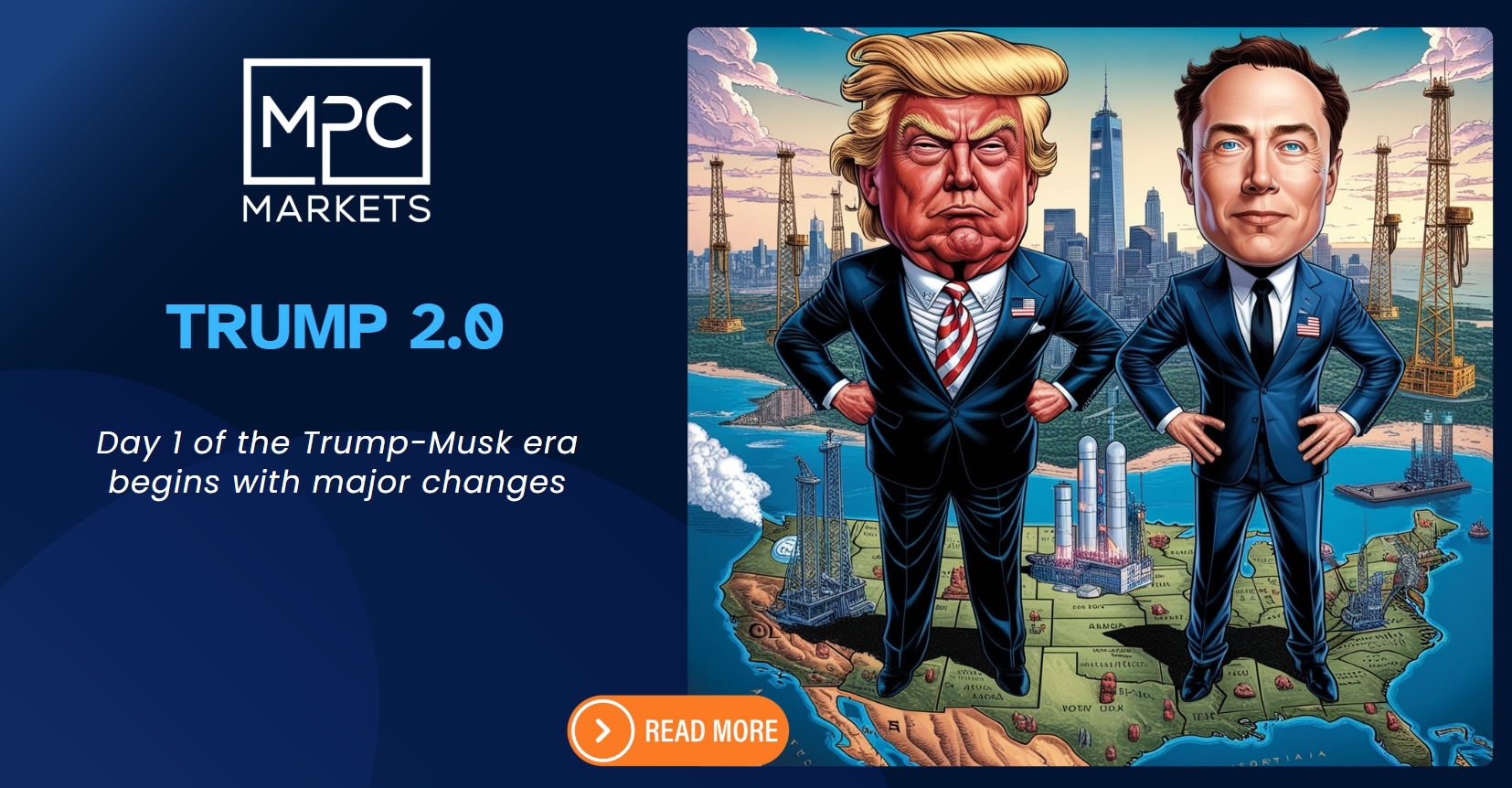“Tru-sk” Day 1 – Policy Announcements
President Trump’s first day in office was marked by a series of significant announcements and executive actions, spanning various policy areas:
Major AI Investment Announcement
President Trump is set to announce a groundbreaking private sector investment in artificial intelligence infrastructure. The key points of this announcement include:
- A joint venture called Stargate, involving OpenAI, SoftBank, and Oracle, plans to invest up to $500 billion over four years, with an initial commitment of $100 billion.
- The announcement is scheduled for 4 p.m. EST at the White House, with CEOs Masayoshi Son (SoftBank), Sam Altman (OpenAI), and Larry Ellison (Oracle) expected to attend.
- This venture may be related to a previously reported $100 billion data center project involving OpenAI and Microsoft, also named “Stargate”.
- The investment reflects the growing demand for AI computing power and specialized data centers.
Trade and Tariffs
- Trump is considering implementing 25% tariffs on Canada and Mexico starting February 1, citing border policy concerns.
- He directed federal agencies to investigate US trade deficits and perceived unfair trade practices.
- The Commerce, Treasury, and US Trade Representative were ordered to examine economic and national security implications of trade deficits.
Immigration and Citizenship
- Trump signed executive orders on immigration and border security.
- He announced plans to end automatic birthright citizenship, effective in 30 days.
International Agreements and Organizations
- The US was withdrawn from the Paris Climate Accord and the World Health Organization.
Other Actions
- The TikTok ban was delayed by 75 days.
- Diversity, equity, and inclusion programs in the federal government were ended.
- A Department of Government Efficiency was created, to be led by Elon Musk.
Economic Impact
- Analysts expect market volatility to continue but predict a rally in stocks and the US dollar during Trump’s first year.
- The AI investment announcement has positively impacted stock prices of Oracle, Nvidia, Arm Holdings, and Dell.
These announcements and actions represent a significant shift in various policy areas, including technology investment, trade relations, immigration, and international agreements. The long-term implications of these decisions remain to be seen, but they have already begun to impact financial markets and international relations.

What the Analysts say:
Donald Trump’s inauguration as the 47th President of the United States elicited diverse reactions from Wall Street analysts, primarily centered on trade policies, potential tariffs, and overall economic direction. While the inaugural address did not introduce immediate, sweeping changes, it set the stage for potential future actions that could significantly impact the economy.
Trade and Tariffs
The absence of immediate, broad tariff announcements was a key point noted by several analysts. Morgan Stanley highlighted that while trade and immigration were emphasized, there were no major shifts in fiscal policy announced during the inauguration. Goldman Sachs characterized the policy announcements on tariffs as “more benign than expected,” with less hawkish comments on China than anticipated.
However, the possibility of future tariffs remains a concern:
- Morgan Stanley warned of potential tariffs on Mexico and Canada by February 1.
- Goldman Sachs maintains a cautious outlook, estimating a 55% probability for EU auto tariffs and a 25% chance of a universal tariff.
- Raymond James expects market focus on the aggressive trade approach, including potential new tariffs by February 1.
Policy Implementation Timeline
Analysts generally agree that significant economic impacts from policy changes may take longer to materialize than initially expected. Wolfe Research noted that Trump’s inaugural address directed agencies to reevaluate trade policies rather than announcing concrete tariff actions. This suggests that planning and implementation of new trade policies will likely extend beyond current consensus expectations.
Economic Implications
The broader economic implications of Trump’s agenda were also a focus for analysts:
- UBS highlighted the potential impacts on energy production and inflation.
- Raymond James emphasized the broad scope of executive orders signed on Day One, covering trade, energy, and immigration.
Market Uncertainty
Despite the lack of immediate, drastic changes, analysts caution that uncertainty remains a significant factor. UBS noted that Trump’s later comments on Canada and Mexico tariffs “served to remind markets of the two-way volatility,” indicating ongoing uncertainty and potential for significant macroeconomic impacts.In conclusion, while Wall Street analysts found Trump’s inaugural address less aggressive on trade than expected, they maintain a cautious outlook. The potential for future tariffs, particularly with key trading partners, remains a concern, and the market is likely to experience continued uncertainty as the new administration’s policies unfold.
